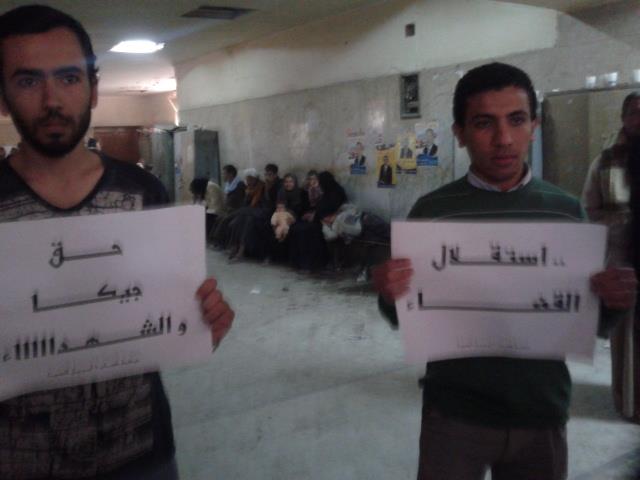CAIRO: If you are reading this sentence, you’ve probably heard the news: things are a mess across the Atlantic. On Monday, the United States House of Representatives rejected a potentially history-making rescue plan for the nation’s beleaguered financial sector, sending US indices careening. The Senate is currently waiting on another House vote after presenting a revised plan.
And if you are reading this sentence online, you probably have at least some idea how a spiraling disaster abroad could possibly affect Egypt, where a still heavily cash-based economy and relatively nascent set of financial tools should, in theory, provide haven from the “credit freeze afflicting developed markets.
The financial crisis is called “global for a reason. With every advance in online communication, trading, banking and asset management, the flow of capital from one state to another is eased. The downside for Egypt and other markets is that when foreign investors get skittish, they aren’t just yanking cash out of their own markets; they are pulling out of everyone else’s too.
So why did lawmakers in the States reject a bailout with such wide-reaching impact, backed not just by the Treasury Secretary and Federal Reserve Chairman but by the president and both parties’ presidential nominees as well?
A glance at the calendar makes the answer plain: In about five weeks, every seat in the House is theoretically up for grabs, though some are far safer than others. Policymakers in tighter races are generally more opposed to the bill.
Polls last week showed that less than three in 10 Americans supported the bailout, despite concessions from the bill’s principal architect Treasury Secretary Henry Paulson, including pay caps for the executives of companies receiving money from the bailout.
Republicans saw the rescue as a blow to the small-government, free-market ideology that was once the cornerstone of their party’s economic ethos.
Democrats didn’t want to use their constituents’ money to rescue – and thus, in a sense, forgive – the Wall Street megalomaniacs who drove the economy into the current mess.
When votes were finally tallied, only about one-third of Republicans and 60 percent of Democrats backed the plan, leaving the plan short of the majority that Congress required to pass the bill.
Wall Street reacted fast. The benchmark Dow index tumbled nearly 778 points, or almost 7 percent, to 10,365. Bank lending rates continued their inexorable ascent and investors flocked to relatively stable assets, like Treasury bills.
High drama, certainly, but where does it leave Egypt?
As the past few weeks have shown, each bank collapse or whisper of impending economic chaos abroad leads nervous foreign investors – largely from the US – to pull out of emerging markets as they try to recoup losses at home. This is less evidence of investor’s distaste for the region than for the entire global financial system.
As news of the bailout failure broke, the CASE was shuttering for Eid El-Fitr and Armed Forces Day, set to reopen next Tuesday. This has proven to be a small blessing, as there aren t any chances for foreign sell-offs until Oct. 7, days after US policymakers had voted on the plan or found an alternative.
If the House of House of Representatives rejects the revised plan and as it looks for an alternative, emerging markets are likely to suffer alongside developed ones, as lending in general is squeezed. While this would be a problem, analysts in Egypt believe the long-term effects here would be small.
“It’s a knee-jerk reaction, said Angus Blair, head of investment bank Beltone Financial. “The problem is in America, albeit that the problems there have led to contagion in other markets, through an exposure to the US mortgages and specific debt instruments, and through falling house prices, particularly in the UK.
And as long as Egyptian companies continue to show strong balance sheets, investors should return.
“Anybody with cash will come in and make quite a lot of money in the short term, once there is stability, Blair said.
Cash could come from the Gulf, which is still flush despite falling oil prices, or from local investors, who buoyed Egypt’s benchmark CASE 30 index in the two days before the exchange closed.
For now, inflation is the more pressing issue. Global food and commodity prices are slipping, but this has yet to percolate into Egyptian markets.
Because of Egypt’s high poverty rates, this makes for a particularly fierce threat. Reacting to record inflation, Moody’s Investor Service lowered their rating on Egypt’s foreign currency country ceilings for bonds and bank deposits from stable to negative and downgraded the government’s local currency bond rating from Baa3 to Ba1 in July.
When foreign markets stabilize, these concerns will likely top the checklists of returning investors. Given Egypt’s high growth rates, the rest should be temporary.


